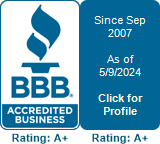A Payroll Taxes Benchmark for Your Small Business

You are accountable for your employees' payroll taxes as a business owner. Delayed or unsettled taxes have severe effects that do not always go well for businesses. You must follow payroll tax directives even if you do not have employees, which is why you must understand what payroll taxes entail.
This guide points you in the correct payroll tax direction.
How Do You Define Payroll Taxes?
Payroll taxes are deductions from your employee's wages and salaries. The taxes pay for government programs, e.g., unemployment, Medicare, and social security. In addition, you can expend the taxes directly or keep back the given finances from your employees' paychecks. Examples of payroll taxes to cover your small business are state, federal, and local income taxes.
You are the sole employee if your business is incorporated but lacks external employees, so you pay the payroll taxes for yourself. If your business is not incorporated, you pay estimated taxes on self-employment instead of payroll taxes.
How Do You Calculate Payroll Taxes?
Payroll tax calculations depend on three factors that dictate your responsibilities.
Taxable workers
You are only accountable for your employees' payroll taxes, not independent workers. The distinction between the two sets of workers is often thin, but the IRS provides identification guidelines. For instance, you do not have predetermined employment timeframes with your employees. On the flip side, independent workers stay for a predetermined time or project life.
Taxable wages
Gifts, bonuses, and rewards for your employees' services are examples of taxable wages. So, you should deduct taxes for such payments from payrolls. Conversely, cash advancements, nonmonetary holiday gifts, and business travel reimbursement do not attract taxes.
Withholding Amounts
Once you identify who and what to tax, evaluate the amount to pay for local, state, and federal taxes. Tables to guide you in computing the amount for state and federal taxes are found on the IRS website.
After you consider the factors above, use the steps below to calculate the exact tax amount:
- Take your employee's gross income
- Minus pretax payments to retirement plans or health insurance
- Compute the tax rates as per the IRS guidelines
- Withhold FICA taxes and contribution to state payroll taxes where applicable from the salary or wage
- Send the payroll tax payments alongside your tax documentation to relevant government agencies
How Do You Submit Payroll Taxes?
You submit payroll taxes to the IRS via an Electronic Federal Tax Payment System (EFTPS). The four forms you can use to present the tariffs are as follows:
- Form 940 (Federal Unemployment Tax Return (FUTA)). You pay FUTA on Schedule H with your individual income tax return.
- Form 941 (Quarterly Federal Tax Return). You apply the form to reconcile your employees' medicare , income, and social security taxes . Form 941 also handles the wages of non-farm employees.
- Form 943 (Federal Tax Return for Agricultural Employees). Use the form mentioned to report payroll taxes to farm workers subject to medical and social security taxes.
- Form 944 (Annual Federal Tax Return). The form is specific to non-farm employees with yearly payroll taxes of less than $1000.
What Are the Consequences of Overdue or Unpaid Payroll Taxes?
Payroll taxes are unique because the deducted share belongs to the government , not you. So, you should not delay or pay the funds late. Otherwise, the IRS will charge you high penalties. Late payments also attract visits from IRS officials.
The consequences of unpaid payroll taxes harm your business's operations and reputation. Besides the enormous fines, the payment mistakes could lead to a business shutdown. In the worst cases, you could serve jail time because you have withheld government funds.
Tax matters can be complex, especially if you do not have professional expertise. Furthermore, costly mistakes can cost you a lot in finances and legal consequences. Fortunately, you do not have to do complicated work. Instead, consult the pros at Quality Bookkeeping Services Inc . for excellent accounting and bookkeeping services.












